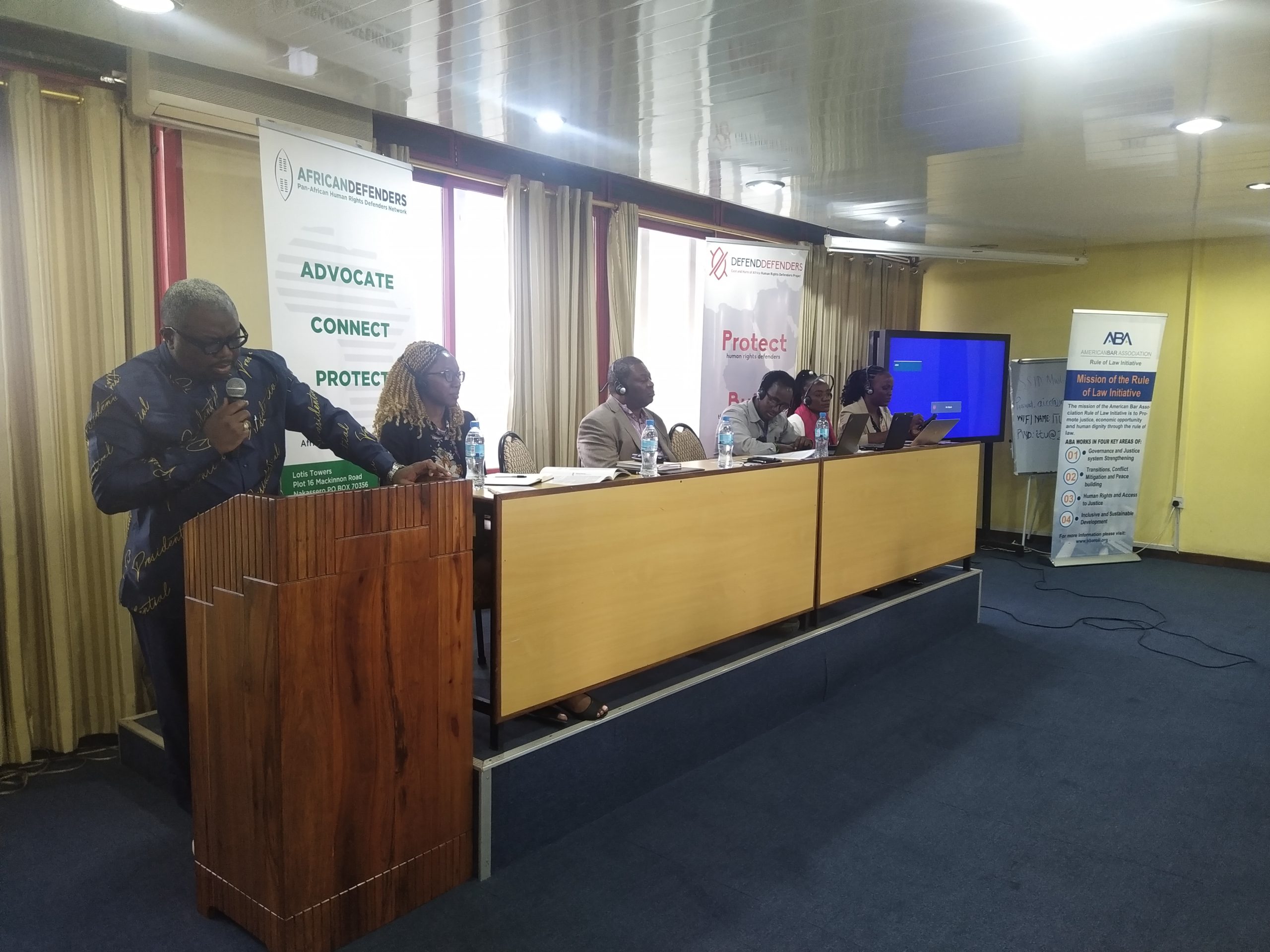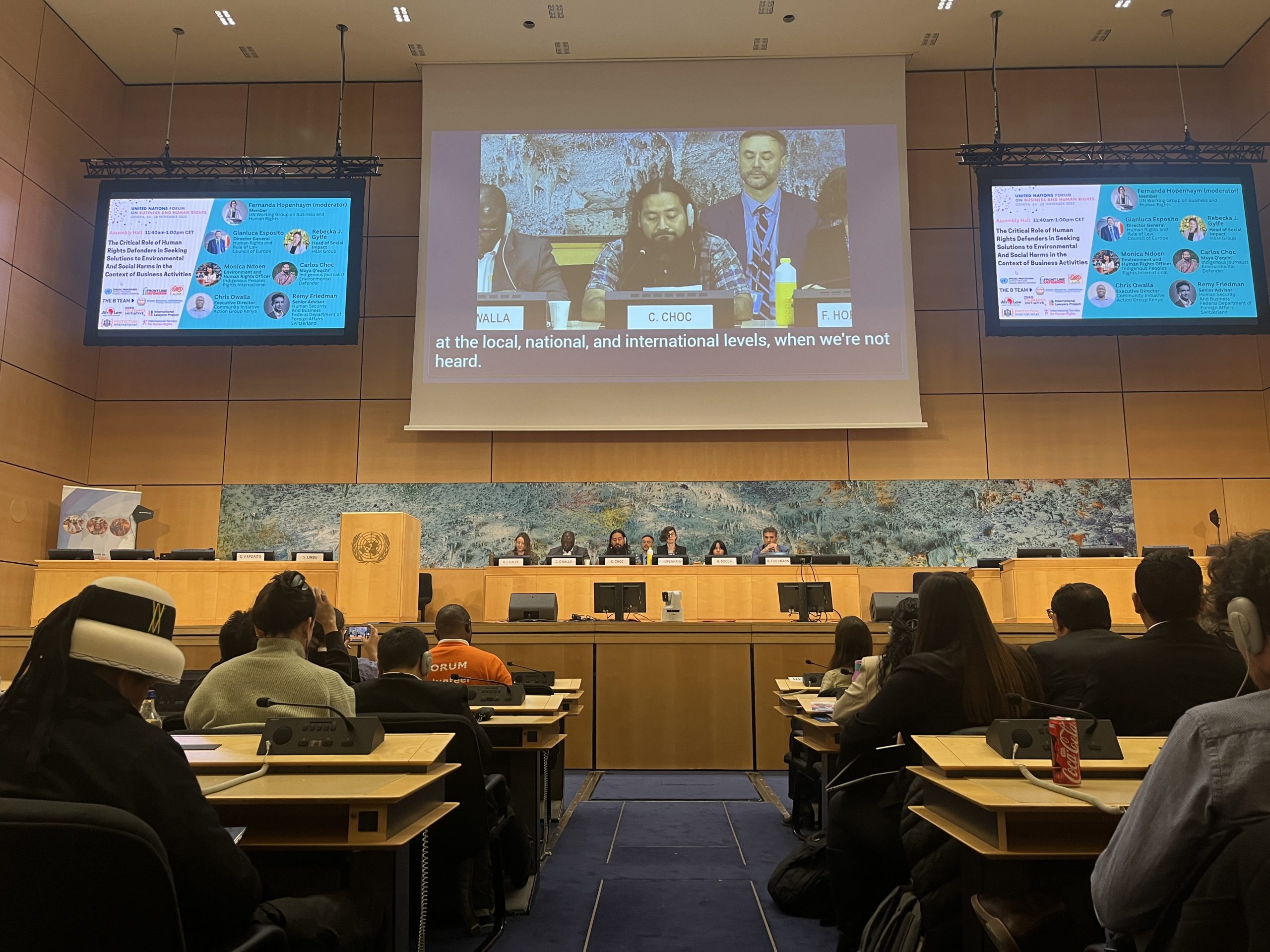Environmental defenders (EHRDs) are critical actors in the promotion and protection of the rights and freedoms of communities that are affected by the extraction of oil, gas, and mining activities, and in the advocacy for proper management of natural resources for the benefit of all citizens. This side event provided an opportunity to share the contextual analysis of the situation of EHRDs in Uganda, DRC and Tanzania and as well as of women defenders (WHRDs) in Cabo Delgado, Mozambique. It also allowed for discussion on strategies for enhancing protection for EHRDs amongst key stakeholders and taking subsequent action.
In Cabo Delgado, the presence of armed forces, private security companies, and powerful and numerous economic actors with economic and political interests, often conflict with those of the local populations. Indeed, the report has found that WHRDs face significant challenges and risks as they strive to protect their communities and promote positive change in the realm of human rights, especially in light of the exactions committed by extractive industry companies operating in the districts of Montepuez, Palma, and Balama.
‘Because of the power of shareholders, and the government allowing full control to corporations and private security forces, civic space in Cabo Delgado is shrinking. Moreover, women defenders are attacked by smear campaigns online, afraid the perpetrators will translate their threats to physical attacks,’ said Sheila Nhancale, Coordinator of the Mozambique Human Rights Defenders Network (RMDDH). She also mentioned that because of the militarisation in the region, WHRDs in Cabo Delgado are not considered legitimate in fighting for rights, especially when they are in leading positions which can even lead to the de-registration of their organisations.
Other panellists emphasised that through their research, in Uganda, cases of physical attacks and threats against EHRDs have escalated, with the Ugandan government and investment companies adopting ever more repressive ways of retaliating against EHRDs. For example, since the discovery of oil in the Albertine region, militarisation of extractive operational sites has made it extremely difficult for EHRDs to access and advocate for change in the sector. Intimidation, arrests, and even infliction of physical violence are common tactics being used against defenders. In DRC, reports have revealed the auction for exploration of 30 oil and gas blocks in 2022, opening parts of the world’s second-biggest rainforest to drilling that could release large amounts of carbon into the atmosphere. EHRDs who have opposed the auction have faced attacks. In Tanzania, the interests of land and environmental rights defenders (LERDs) such as the Loliondo pastoralists are being ignored by State organs and institutions in favour of powerful business interests. Members of the Maasai community were violently evicted by security forces from their ancestral lands in Loliondo, leaving 70,000 people without access to the grazing lands that their livelihoods depended on, and were denied their culture, ancestral wisdom, legacy, and basic human rights. When the African Commission on Human and Peoples’ Rights conducted a monitoring visit to investigate the situation, it recommended engagement consultations with the Maasai, and addressing their concerns about the resettlement program.
This event was the opportunity to raise the awareness of the African Commission on Human and Peoples’ Rights (ACHPR) and civil society about the current trends affecting environmental human rights defenders, including women, in Mozambique, Uganda, DRC and Tanzania, and about possible strategies for enhancing environmental protection. Participants and panellists called on the Special Rapporteur on human rights defenders to produce a report and investigate violations against EHRDs and Indigenous peoples’ land in Africa and to continue supporting States to strengthen the legal framework for defenders.




